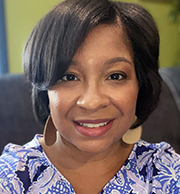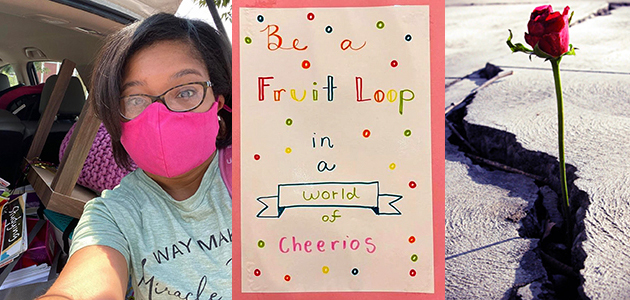
Four Platform Builders to Stretch Your Comfort Zone
By Jentae C. Scott-Mayo | May 2022
 The “Maslow before Bloom” idea of supporting mental health before learning can take place has become a recurring theme and mantra of the school counseling profession. This is especially true since the pandemic began. Subsequently, wellness has proven to be another buzzword as we work to address the increasing mental health and social/emotional needs of students and school staff. Comfort zones and emotional safety lie in the “esteem” area of Maslow’s framework. In this area, it is thought that we, as human beings, need respect, self- esteem, recognition, freedom, status and strength to feel fulfilled. Remaining stagnant in this area of fulfillment can inhibit individuals from achieving our optimal potential. When one feels safe and valued, they are often hesitant to take on new challenges and risks. In this space, we see both students and educators sacrificing opportunity for security. How much one is willing to stretch that comfort zone also depends on one’s confidence in their surroundings. In order to feel comfortable stretching comfort zones, the presence of an environment in which one can make mistakes and learn from them, without sacrificing dignity, is imperative.
The “Maslow before Bloom” idea of supporting mental health before learning can take place has become a recurring theme and mantra of the school counseling profession. This is especially true since the pandemic began. Subsequently, wellness has proven to be another buzzword as we work to address the increasing mental health and social/emotional needs of students and school staff. Comfort zones and emotional safety lie in the “esteem” area of Maslow’s framework. In this area, it is thought that we, as human beings, need respect, self- esteem, recognition, freedom, status and strength to feel fulfilled. Remaining stagnant in this area of fulfillment can inhibit individuals from achieving our optimal potential. When one feels safe and valued, they are often hesitant to take on new challenges and risks. In this space, we see both students and educators sacrificing opportunity for security. How much one is willing to stretch that comfort zone also depends on one’s confidence in their surroundings. In order to feel comfortable stretching comfort zones, the presence of an environment in which one can make mistakes and learn from them, without sacrificing dignity, is imperative.In the spirit of student and school counselor wellness, I share some ideas to build a platform and environment where both school counselors and students feel comfortable and are in a position for learning, growing and trailblazing!
- How are you best led? When my current Head of School asked me this question it was an absolute game changer. I had never been asked this question and, therefore, did not think my answer would flow so easily, and yet it did. As professionals, we ultimately have preference in leadership styles, whether we know it and feel comfortable expressing it or not. To this end, students feel safest, take ownership, are held accountable and feel empowered in an environment where they feel that they have a voice in their learning and education.
- What are you seeking? A tremendous amount of information is available on “love languages,” but before we can communicate a love language to others, we must consider what we seek in order to achieve fulfillment. What do our students need to feel successful, and is their definition of success different from ours? How can we support our students’ definitions of success through the goals and interventions we offer? How can we ensure we are meeting them where they are and are not imposing status-quo definitions of success? To create and establish buy-in, I encourage you to have realistic conversations with your students about what they need and what role they see you playing in supporting them.
- Challenge what you champion: As an extension of understanding what you seek for professional fulfillment and what your students seek, consider the qualities valued by your school, students, school staff and school community. Do these qualities reflect your strengths? Passions? Goals? In my professional journey, I have found it critical that stakeholders and I have a shared vision and passion.
- Power in potential: I cannot tell you how powerful it has been, throughout my career, to have mentors see in me what I have not yet seen in myself. Much of where I am today is due to someone who was intentional about seeking me out for an opportunity and pouring into me. For a person who struggles with self-confidence, this has truly been the reason for so many opportunities I have been afforded. This is also why I take every opportunity to mentor and encourage others in whom I see light. I am led by all the others who saw that same light in me.
Jentae C. Scott-Mayo is a member of the VSCA Board of Directors.
